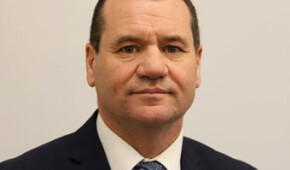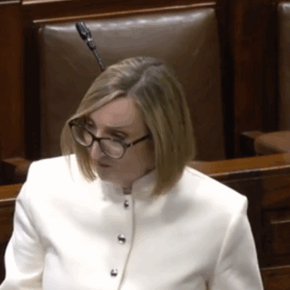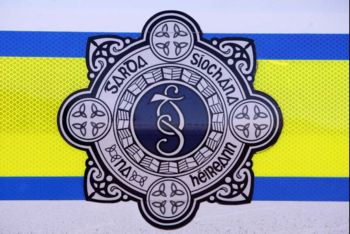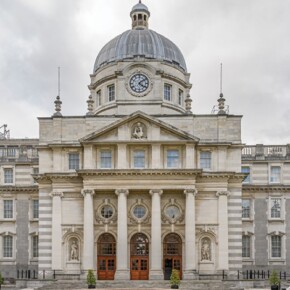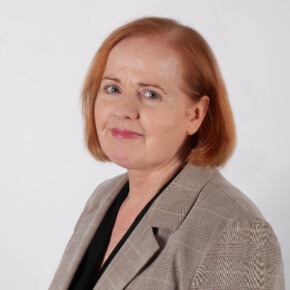Dalkey responders launch new community scheme Responders network launched
Dublin People 29 Jan 2015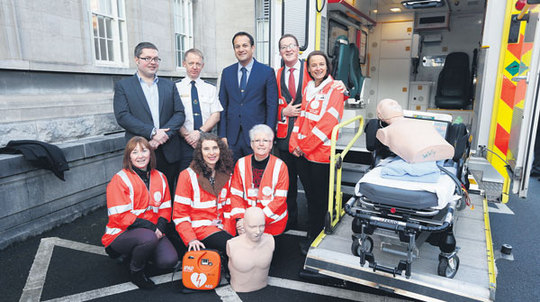
FIRST responders from Dalkey were on hand to help launch a new national network scheme last week.
They joined the Minister for Health, Leo Varadkar at the launch of the Community First Responders (CFR) network, which aims to double the number of CFR schemes in the country over the next 12 months in a bid to increase the survival rate of victims of cardiac arrest.
Community First Responders are civilians who are trained to international standards in cardiopulmonary resuscitation, defibrillation and oxygen therapy. They are part of a local CFR scheme, which is linked to the National Ambulance Service.
When the emergency services are alerted to a case of cardiac arrest, chest pain, choking or stroke, a civilian responder from the local CFR scheme is automatically dispatched to the scene along with the ambulance.
The local CFRs can often attend the scene before an ambulance will arrive, and in cases where time is critical such as cardiac arrest, this can save lives.
Currently there are more than 100 CFR schemes around the country, all linked to the National Ambulance Service.
Speaking at the launch, Minister Varadkar said:
“The launch of Community First Responders is a really positive step for healthcare in Ireland and will certainly save lives.
“There are more than 100 local Community First Responder teams across Ireland providing vital help and assistance every day of the week. Now, for the first time, there is a national network to support local responders and to expand the service.
“Many parts of Ireland have a very dispersed population and in many cases the local CFR team can make all the difference to the medical outcome.
?
Approximately 15 people die from cardiac arrest in Ireland every day.
Dr David Menzies, Medical Director of CFR Ireland said:
“The rate of survival from cardiac arrest is completely dependent on the speed of response.
“The best chance of survival is defibrillation within the first 10 minutes.
“For every one minute without treatment, the chances of survival drop by 10 per cent.
?
John Fitzgerald of CFR Ireland added:
“CFRs from around the country put a lot of time and effort into launching and running schemes and we feel that if all of this energy is channelled in the same direction, it will be very powerful.
“We already have national support from the Irish Heart Foundation, the UCD Centre for Emergency Medical Science, the National Ambulance Service and the Pre Hospital Emergency Care Council.
“Now we need to share our own skills, experiences and knowledge base on a national level, to help increase the number of CFR schemes around the country and to help save lives by getting trained responders to victims of cardiac arrest faster.
?
Martin Dunne, Director of the National Ambulance Service (NAS) said they were committed to working with the CFR schemes across the country.
“These schemes compliment the services provided by the ambulance service and ensure that life saving emergency treatment can begin as soon as possible,
? he said.
“NAS is proud to have worked with in excess of 100 existing CFR schemes and we look forward to supporting CFR Ireland in significantly expanding the number of schemes
?
CFR activity is entirely voluntary. More information about the network and how to set up a CFR scheme can be found on the website: www.cfr.ie.


